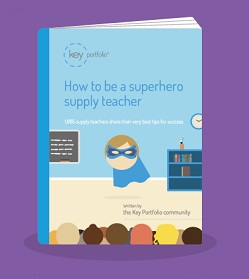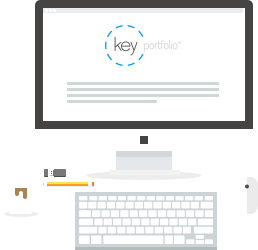Tips, tricks and tactics from experienced supply teachers
7 minutes to read

You’ve probably chosen supply work because it gives you flexibility – to travel, to look after your family, to pursue hobbies and creative sidelines, to build up a tonne of experience while you look for your ‘forever school’. But whether you’ve just left a permanent teaching position or you’re fresh from uni as an NQT, we know how daunting that first assignment can seem.
So, we rallied our community of experienced supply teachers and asked them to share their very best tips and advice with you. Nearly 2,000 of them responded.
These supply teachers have worked across all age groups, in all types of schools, in all subjects. They’ve taken assignments lasting one afternoon, one term and one year. They’ve arranged work in advance and at 7:30am that morning. They’ve “seen it, done it and got the (P.E.) t-shirt to prove it,” as one teacher, Sophie, put it.
We’ve shared some of their best tips here, but there were far too many for just one article – you can read the rest by downloading our ‘how to be a superhero supply teacher’ ebook.
Get your game face on
Ahead of your first booking, prepare some emergency lessons for all age groups that you might be working with. Make sure they’re portable, easily resourced and don’t create too much marking. The school should leave planning for you, but you might prefer to feel ready for anything. Pack a bag – Mary Poppins style – containing everything you might need for a day at school. There’s a long list of ideas in the ebook, but definitely don’t forget teabags! As supply teacher Nicola told us, “there’s nothing worse than being made to pay for your cup of tea or finding that the staff buy their own and keep them under lock and key!”
When you accept your first job (yay!), research the school as best you can using their website and Ofsted report, and asking your recruitment consultant. Plan your route ahead of time to reduce rush hour stress, but you should also have some handy travel apps on your phone, like Citymapper, in case it’s a last-minute call. Arrive as early as possible so you can make sure you have all the info you need, like a copy of the behaviour policy and a map of the school. If you don’t get it – ask!
Go in like a hero
It’s natural to get nervous on your first day with a new class, but our supply teachers say the trick is to feel the fear and do it anyway. Plan out your intro before you arrive, so you can set the right tone straight away. Your intro will depend on your personality and the classes you typically teach – think about your body language, how to introduce yourself, when to smile, establishing your rules, whether to stand or sit. Imagine doing the register and identify a great starter lesson. These are all things you can practice ahead of time and turn into a routine. “Don’t be afraid to take control of a classroom that isn’t yours and manage behaviour effectively, as if it were your class, but in line with what the class teacher usually does,” says supply teacher Catherine. Our community has lots of tried-and-tested behaviour management tips for unfamiliar classes, which you’ll find in the ebook.
Bend over backwards
You’ll be keen to impress your agency and the schools you visit, because it increases your chances of repeat bookings. In practice, our supply teachers have found that this means going the extra mile. Some days will be easier than others, but always aim to do the very best teaching that you can in the circumstances you’re given. Do all of the marking, leave helpful notes for the class teacher and tidy up before you go home. In other words, “bend over backwards to be the sort of supply teacher you’d like to have in your own classroom,” as supply teacher Jane put it to us. Interact with the school staff as much as possible, always say thank you, smile, and offer to help out with things like playground duties if it doesn’t put you under too much pressure. When you make a positive impression, you never know where it’ll lead.
Always have a Plan B, C and possibly D
A supply teacher quickly learns to roll with the punches. When an 8am call comes in from your agency. Or when actually, they need you to cover Year 6, not Year 1. Or when it turns out the class teacher didn’t leave any planning after all, sorry! You’ll get used to thinking on your feet and it helps if you have a few tricks up your sleeve. Subscribe to some teaching resource sites, have a back-up plan in case technology lets you down and don’t stress if it’s impossible to cover all the work. Carry a favourite book around with you and have some go-to time fillers and activities. The unpredictable nature of supply can force you to step away from the styles and techniques you’ve always used with your own classes, so go in with an open mind and make the most of the opportunity to try out that new behaviour tip you read about.
Don’t be afraid to ask for help
You’re never on your own. If things aren’t quite going to plan in the classroom, or it’s just that you’ve forgotten where the toilets are, there should always be someone who has your back. Reports vary of course but as a starting point, assume that others in the school will be supportive – our supply teachers say that they usually are. Make a point of visiting the staffroom, introduce yourself to the HOD, make friends with your teaching assistant and try to get to know the teacher next door. When you first arrive at the school, “see what work has been left by the class teacher and check that you have all the books, paper and equipment you need as early in the lesson as possible,” recommends one supply teacher. “It’s easier to ask the teacher next door for help if they haven’t started their lesson yet.”
Get your support team working for you
Your recruitment consultant will support you from when you first register with their agency to the day you walk through the gates of your first school, and beyond. A good relationship with them can make for a much smoother supply teaching experience and help you find your ideal assignments. Be open and honest with them about your wishes and preferences, ask questions if there’s anything at all you’re not sure about, call them regularly and show them that you’re reliable. It’s okay to join more than one recruitment agency. In fact, as supply teacher David says, “It’s better to be waiting for three phone calls about work than one.” But if you accept an assignment with one agency, don’t let them down if a better offer comes along.
And of course, find a good umbrella company. An umbrella company is an employer for people who work on temporary assignments, like supply teachers. When your agency finds you an assignment, your umbrella company will pay you for it. They’ll also employ you, and with that comes a range of employment-related benefits, protections and support – like sick pay, maternity pay, a pension, professional advice, and often extra perks like shopping discounts. If you take the advice to join multiple agencies, the umbrella will centralise all your income into one weekly payment, process it under one tax code and detail it on one payslip. When you’re looking for an umbrella company, we hope you’ll consider Key Portfolio. We’d love to welcome you to the community.
There’s much more detail on all of these tips, plus many more, in our ‘how to be a superhero supply teacher’ ebook – download it now.




